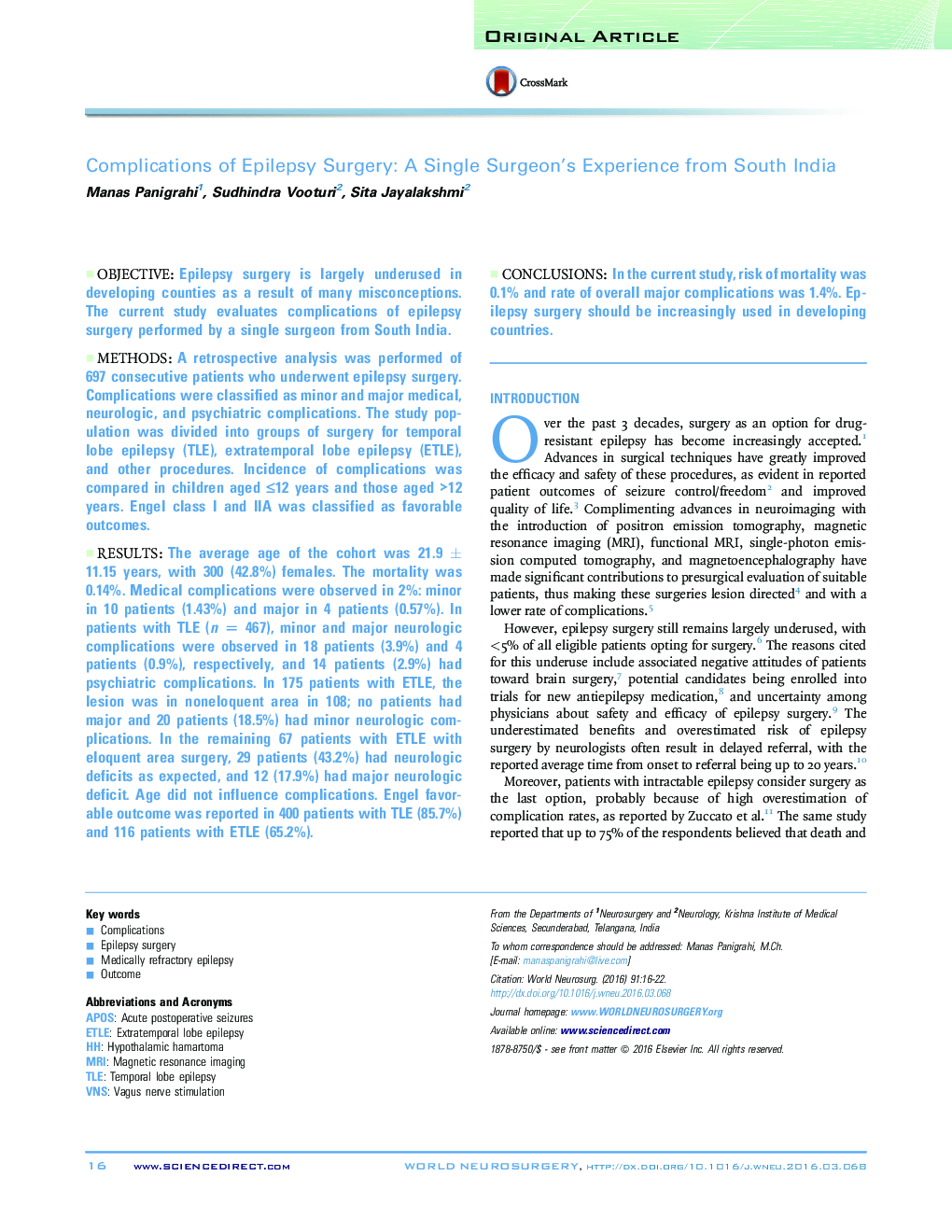| Article ID | Journal | Published Year | Pages | File Type |
|---|---|---|---|---|
| 3094521 | World Neurosurgery | 2016 | 7 Pages |
ObjectiveEpilepsy surgery is largely underused in developing counties as a result of many misconceptions. The current study evaluates complications of epilepsy surgery performed by a single surgeon from South India.MethodsA retrospective analysis was performed of 697 consecutive patients who underwent epilepsy surgery. Complications were classified as minor and major medical, neurologic, and psychiatric complications. The study population was divided into groups of surgery for temporal lobe epilepsy (TLE), extratemporal lobe epilepsy (ETLE), and other procedures. Incidence of complications was compared in children aged ≤12 years and those aged >12 years. Engel class I and IIA was classified as favorable outcomes.ResultsThe average age of the cohort was 21.9 ± 11.15 years, with 300 (42.8%) females. The mortality was 0.14%. Medical complications were observed in 2%: minor in 10 patients (1.43%) and major in 4 patients (0.57%). In patients with TLE (n = 467), minor and major neurologic complications were observed in 18 patients (3.9%) and 4 patients (0.9%), respectively, and 14 patients (2.9%) had psychiatric complications. In 175 patients with ETLE, the lesion was in noneloquent area in 108; no patients had major and 20 patients (18.5%) had minor neurologic complications. In the remaining 67 patients with ETLE with eloquent area surgery, 29 patients (43.2%) had neurologic deficits as expected, and 12 (17.9%) had major neurologic deficit. Age did not influence complications. Engel favorable outcome was reported in 400 patients with TLE (85.7%) and 116 patients with ETLE (65.2%).ConclusionsIn the current study, risk of mortality was 0.1% and rate of overall major complications was 1.4%. Epilepsy surgery should be increasingly used in developing countries.
